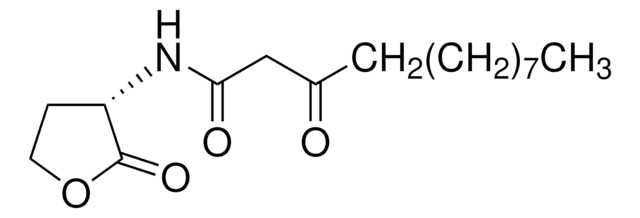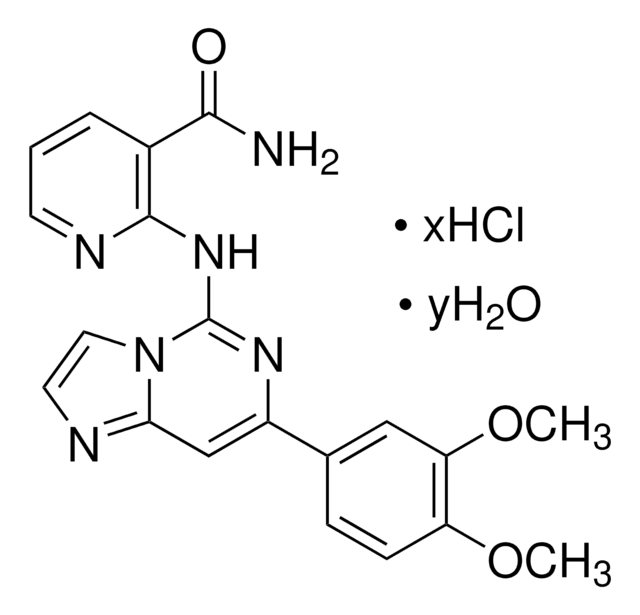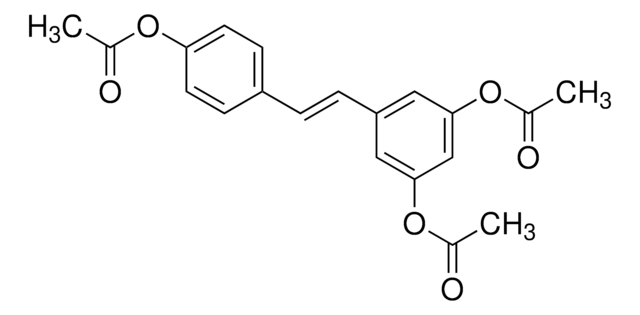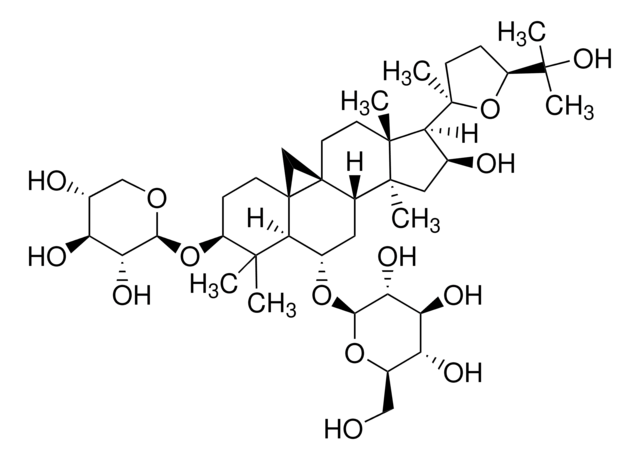P0453
Piceatannol
powder
Synonym(s):
(E)-4-[2-(3,5Dihydroxyphenyl)ethenyl]1,2-benzenediol, 3,3′,4,5′-Stilbenetetrol, 3,3′,4,5′-Tetrahydroxy-trans-stilbene, Astringenin
About This Item
Recommended Products
Assay
≥98% (HPLC)
Quality Level
form
powder
color
light tan to yellow
mp
223.0-227.0 °C
solubility
H2O: 0.5 mg/mL
DMSO: 10 mg/mL
ethanol: 10 mg/mL
storage temp.
2-8°C
SMILES string
Oc1cc(O)cc(\C=C\c2ccc(O)c(O)c2)c1
InChI
1S/C14H12O4/c15-11-5-10(6-12(16)8-11)2-1-9-3-4-13(17)14(18)7-9/h1-8,15-18H/b2-1+
InChI key
CDRPUGZCRXZLFL-OWOJBTEDSA-N
Gene Information
human ... CDK2(1017)
Looking for similar products? Visit Product Comparison Guide
General description
Application
- to study its effect on Ataxia-Telangiectasia Mutated (ATM) protein kinase
- as an inhibitor of ZAP-70 (ζ-chain-associated protein kinase 70)
- as an inhibitor of MRP1-mediated 2′,7′-bis-(carboxypropyl)-5(6)-carboxyfluorescein (BCPCF) transport in intact human erythrocytes and inside-out erythrocyte vesicles (IOVs)
Biochem/physiol Actions
Features and Benefits
Physical form
Signal Word
Warning
Hazard Statements
Precautionary Statements
Hazard Classifications
Acute Tox. 4 Dermal - Acute Tox. 4 Inhalation - Acute Tox. 4 Oral
Storage Class Code
11 - Combustible Solids
WGK
WGK 3
Flash Point(F)
Not applicable
Flash Point(C)
Not applicable
Personal Protective Equipment
Certificates of Analysis (COA)
Search for Certificates of Analysis (COA) by entering the products Lot/Batch Number. Lot and Batch Numbers can be found on a product’s label following the words ‘Lot’ or ‘Batch’.
Already Own This Product?
Find documentation for the products that you have recently purchased in the Document Library.
Customers Also Viewed
Articles
Chronic inflammation is an underlying factor in the development and progression of many of the chronic diseases of aging, such as arthritis, atherosclerosis, diabetes, and cancer.
Discover Bioactive Small Molecules for Kinase Phosphatase Biology
Discover Bioactive Small Molecules for Kinase Phosphatase Biology
Discover Bioactive Small Molecules for Kinase Phosphatase Biology
Our team of scientists has experience in all areas of research including Life Science, Material Science, Chemical Synthesis, Chromatography, Analytical and many others.
Contact Technical Service
















